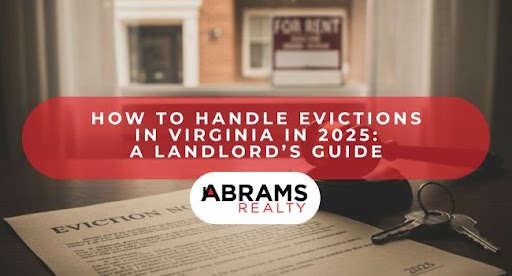Navigating the eviction process in Virginia requires a clear understanding of the legal landscape, especially with recent legislative changes in 2025. For landlords, adhering to the law is crucial to avoid potential pitfalls. This comprehensive guide outlines the steps, legal requirements, and best practices for handling evictions in Virginia, with a focus on the latest updates and resources available.
Understanding Virginia’s Eviction Laws in 2025
Virginia's eviction laws are primarily governed by the Virginia Residential Landlord and Tenant Act (VRLTA). Key updates effective July 1, 2025, include:
Eviction Diversion Program Expansion
Previously available only in select cities, this program is now statewide, allowing tenants to avoid eviction through structured repayment plans.
Lease Fee Disclosure Requirements
Leases must include an itemized list of charges, such as security deposit amount and rent due per lease period, on the first page.
Lease Termination Rights for Crime Victims
Victims of certain crimes have the right to terminate their lease without penalty.
Landlords must stay informed about these changes to ensure compliance.
Grounds for Eviction in Virginia
Landlords may initiate eviction proceedings for several reasons:
Nonpayment of Rent
Failure to pay rent is a common cause for eviction.
Lease Violations
Breaches of lease terms, such as unauthorized pets or property damage, can lead to eviction.
Criminal Activity
Engaging in illegal activities on the property is grounds for eviction.
Other Just Causes
Including property damage, illegal subletting, or health and safety violations.
It's essential to document all violations and follow legal procedures when initiating eviction.
The Eviction Process Step-by-Step
Step 1: Issuing the Appropriate Notice
- 5 Day Pay or Quit Notice: For nonpayment of rent, tenants must be given five days to pay or vacate.
- 30 Day Notice to Comply or Vacate: For lease violations, tenants must be given 30 days to comply or vacate.
Step 2: Filing an Unlawful Detainer Action
- Court Filing: If the tenant does not comply, the landlord can file an unlawful detainer action in the General District Court.
Step 3: Court Hearing and Judgment
- Court Decision: The court will hear the case and may issue a judgment for possession in favor of the landlord.
Step 4: Enforcement of the Eviction
- Writ of Eviction: If the tenant does not vacate, the landlord can request a writ of eviction, which is enforced by the sheriff.
Tenant Rights and Landlord Responsibilities
Tenants have specific rights during the eviction process.
Right to Contest
Tenants can contest the eviction in court.
Protection Against Retaliation
Landlords cannot evict tenants in retaliation for exercising their legal rights.
Landlords must adhere to all legal procedures and cannot engage in self-help measures, such as changing locks or shutting off utilities.
Common Pitfalls and How to Avoid Them
Landlords often encounter challenges during the eviction process:
Improper Notices
Failure to serve the correct notice can delay the process.
Not Following Court Procedures
Skipping steps or missing deadlines can result in case dismissal.
Handling Tenant Defenses
Tenants may present defenses that landlords need to address appropriately.
Self-Help Evictions
Attempting to remove a tenant without court approval is illegal.
Avoiding these pitfalls requires careful attention to detail and adherence to legal procedures.
Resources for Landlords
Several resources are available to assist landlords:
Virginia Department of Housing and Community Development (DHCD)
Provides information on landlord-tenant laws and resources.
Virginia Poverty Law Center (VPLC)
Offers guidance on eviction prevention and tenant rights.
Local Legal Aid Organizations
Provide free or low-cost legal assistance to landlords.
Utilizing these resources can help landlords navigate the eviction process effectively.
Best Practices for Preventing Evictions
Preventing eviction is beneficial for both landlords and tenants:
Thorough Tenant Screening
Conduct background and credit checks to assess tenant reliability.
Clear Lease Agreements
Ensure lease terms are well-defined and understood by both parties.
Regular Property Inspections
Monitor property conditions to address issues promptly.
Open Communication
Maintain a positive relationship with tenants to resolve issues before they escalate.
Implementing these practices can reduce the likelihood of eviction.
Conclusion
Handling evictions in Virginia requires a thorough understanding of the legal process and recent legislative changes. By staying informed and following best practices, landlords can navigate evictions effectively and minimize potential issues. Utilizing available resources and seeking professional assistance when needed can further ensure compliance and successful outcomes.
For more detailed information, landlords can refer to the Virginia Residential Landlord and Tenant Act and consult with legal professionals specializing in landlord tenant law.


